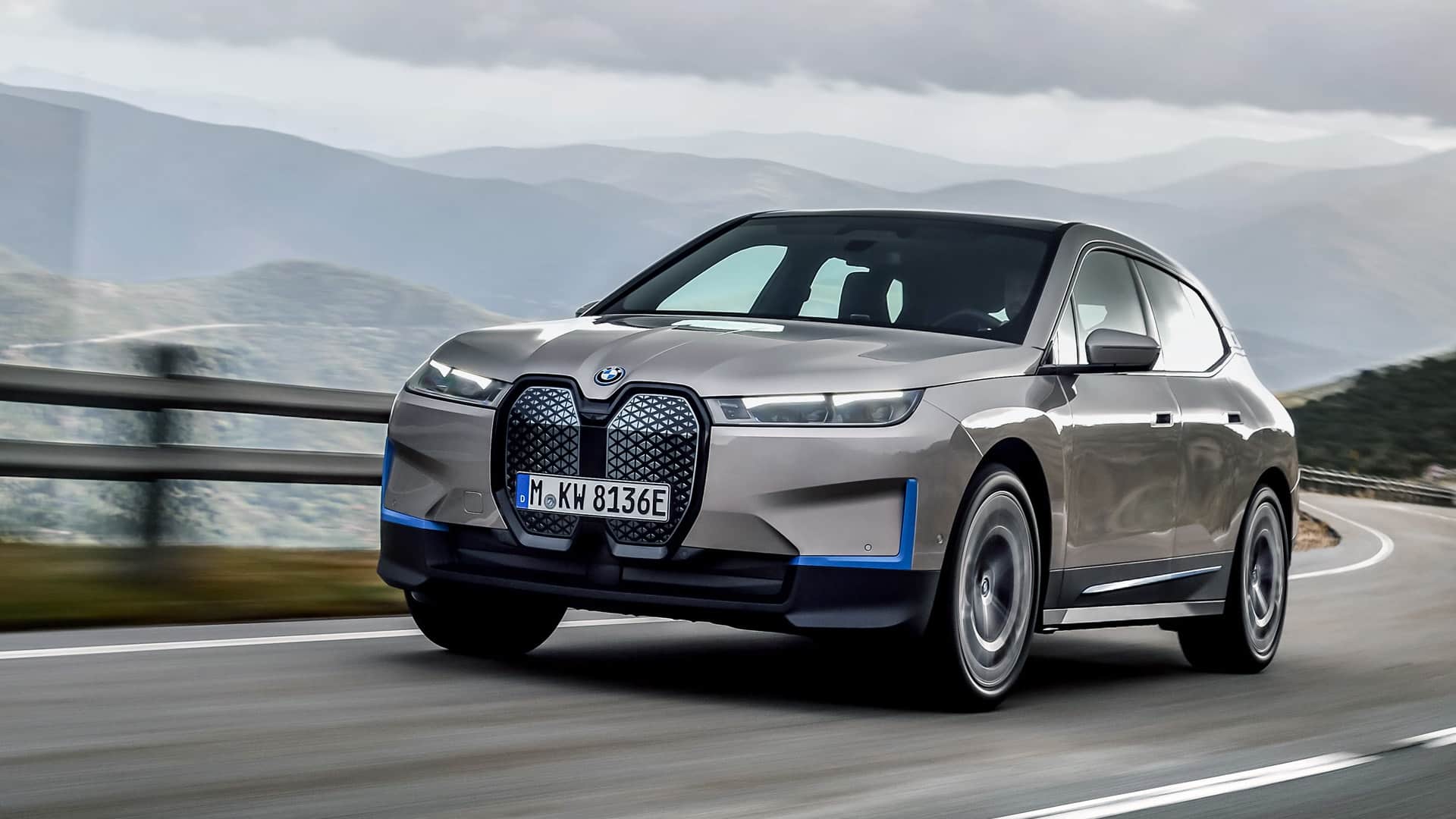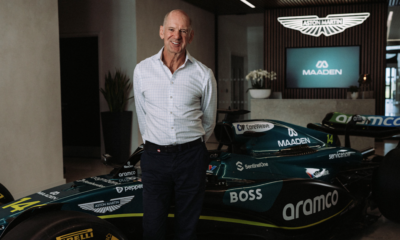Auto
A New Era, a New Class: BMW Group Steps up Technology Offensive with Comprehensive Realignment – Uncompromisingly Electric, Digital and Circular
BMW i4 to be launched three months ahead of schedule BMW Operating System 8 installed for first time in new BMW iX* world’s largest fleet for over-the-air upgrades by end of 2021 Breadth over niche: around 90 percent of market segments to have fully electric models by 2023 Deliveries of fully electric models to grow by well over 50 percent annually on average by 2025 Neue Klasse’ to spearhead product range from 2025 Fully electric models to account for at least 50 percent of global deliveries by 2030 MINI to become a fully electric brand by the early 2030s Circular economy as goal for future product generations Outlook: Significant increase in Group profit before tax Zipse: Transformation will give BMW a competitive edge The BMW Group has entered 2021 with ambitious targets for growth and profitability and will be putting the first forerunners of its far-reaching technology offensive on the roads in the coming months.
At the same time, it has set the course for a comprehensive realignment. From the middle of the decade, a new generation of models will take premium mobility to a new level from a technological perspective. The BMW Group has ambitious plans for 2021. We have started the new year with strong momentum and are aiming to return to pre-crisis levels as swiftly as possible and go even further, said Oliver Zipse, Chairman of the Board of Management of BMW AG, in Munich on Wednesday. We have a clear roadmap for making the transformation of our industry a real competitive advantage for BMW in the coming years: uncompromisingly electric, digital and circular. After a demanding year that ended with a successful final spurt, the BMW Group is determined to remain on a course of recovery in 2021 and has set itself ambitious targets, including significant growth in Group profit before tax. The Automotive segment is expected to a record a solid increase in deliveries. The segment EBIT margin is forecast to improve to within a range of 6 and 8 percent for the full year 2021. 2021 is all about growth for us. At the same time, we are prepared to respond flexibly, said Nicolas Peter, Member of the Board of Management of BMW AG, Finance. We always think and act long-term; by making the right decisions today we are setting the stage to achieve our ambitious strategic goals for 2025, 2030 and beyond.
Also read: Shuchi partners with HPCL to set up EV charging points across retail fuel pumps
Electric, digital, circular a clear roadmap for transformation The BMW Group is driving the transformation towards fully electric connected mobility in three phases. The first phase involved pioneering the e-mobility venture with Project i, embracing the new technology and ultimately transferring electric know-how to series production. Over time, this technology has become integrated across the entire product portfolio, particularly in the form of plug-in hybrids. Apart from the electric drivetrain itself, other key factors driving the transformation include software and the digital interaction with the vehicle. Back in 2014, the BMW Group created the option to book and pay for services online, directly from the vehicle via the BMW Connected Drive store. Moreover, since 2018 BMW drivers have been able keep their vehicle software up to date via remote software upgrades, similar to downloading the latest software for a smartphone. The second phase of the transformation began with the option to choose the preferred type of powertrain from combustion engines through to fully electric power in one and the same model. The prerequisites are smart vehicle architectures and a highly flexible production network that enable maximum interchangeability between the various drivetrain forms when optimally combined. World’s largest fleet featuring over-the-air upgrades on roads by end of 2021
In terms of digitisation, the BMW Operating System 8, which is scheduled for launch in 2021, is the most powerful in-vehicle data processing system the BMW Group has ever developed. The new operating system makes every BMW a digital powerhouse with the ability to perform over-the-air upgrades at amazing speed. This year, the BMW Operating System 8 will be installed for the first time in the all-electric BMW iX*, forming the basis for the eighth generation of BMW iDrive the simplest and safest operating concept to be installed in a vehicle. Both technologies will be subsequently rolled out across the various model series. The number of vehicles that can be updated with remote software upgrades also continues to grow rapidly. By the end of 2021, with well over two million units, the BMW Group will have the world’s largest fleet of vehicles capable of installing new or upgrading existing functions over the air. Going forward, the BMW Operating System 8 will also be capable of providing customers with an even broader range of functions on demand that can be subsequently ordered and installed over the air. Moreover, customer offers will be structured more flexibly, enabling functions to be purchased outright or rented for three years, 12 months or just one month. Breadth over niche: fully electric models to cover around 90 percent of current market segments by 2023 The combination of smart vehicle architectures and a highly flexible production network will enable the BMW Group to have around a dozen fully electric models on roads worldwide by 2023. This year, the three models already on the market the BMW i3*, the MINI SE* and the BMW iX3* will be joined by two key innovative models, namely the BMW iX* and the BMW i4, the latter three months earlier than originally planned. The launch of the BMW iX* and the BMW i4 will signalise the start of our technology offensive in 2021: these two all-electric vehicles will set the benchmark for BEVs going forward, said Zipse.









































